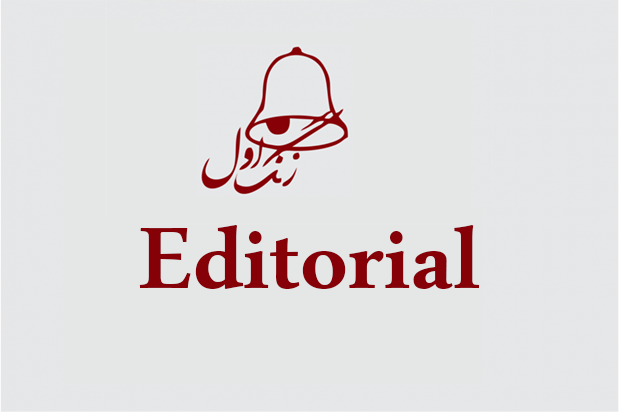The war between the government and the Taliban, regardless of the issue of power, is based on the principles and values in which both sides define their existence. The main factor behind the peace talks is the difference of opinion between the two sides on the same principles and values. This difference of opinion has prevented government and Taliban representatives from agreeing on a ceasefire, interim government and a future political system.
The Taliban is seeking maximum gains from the peace negotiating table. This group opposes all the principles and values that give meaning to “republic”. The Taliban’s proposal is a “Shari’a” order that does not uphold civil rights and freedoms. At the head of such an order is a person named “Amir al-Mu’minin” who is elected by the vote of the Council of the “Ulama” (Islamic Scholars). This person is above everything, and following his will and decision is a religious duty.
In contrast, the Afghan government wants to preserve the principle of “republic” in the future system. Within the framework of this principle, citizenship rights and freedoms of members of society are protected. Representatives and heads of institutions are elected by popular vote, and all of them are ultimately accountable to the people.
The differences between the government and the Taliban are based on these principles and values. Until the two sides can agree on common principles and values, they cannot take the next step.
The Rome Statement, issued by the Special Representatives of NATO, the European Union, the United States, the United Kingdom, Germany, France, Norway and Italy, underscores this difference of opinion. According to the statement, the government and the Taliban must agree on a ceasefire and a transitional government before a final agreement can be reached.
Since the beginning of the intra-Afghan talks in Qatar (September 12, 2020) until now, the main dispute between the representatives of the two sides has been over how to discuss and agree on these principles and values. The ceasefire, which was the Afghan government’s most important demand in the talks, has not been accepted by the Taliban. The leaders of the “Republic” even announced their readiness for a transitional government and early elections but the Taliban did not take a single step towards agreement.
The Taliban seeks to subdue the government to its demands, proposals and plans for the future. This goal is pursued by the Taliban both through diplomacy and war. A decade and a half of hot and cold contact between the two sides shows that the Taliban is not interested in a just peace with the government. The group is also seeking to dominate the negotiations. The Taliban are also pursuing this goal through war. The group’s advance in the last three months means nothing more than a thirst for the overthrow of the government and the establishment of the “Islamic Emirate” by force and bloodshed.
Ceasefire is a good offer for the government. The political leaders of the “republic” constituency also have a flexible position to form a transitional government. However, there is still disagreement among these leaders about how to form an interim government and the mechanism for appointing its leaders. Nevertheless, the political atmosphere in the “republic” is favorable for accepting these proposals of the international community.
The other side of the issue is the Taliban. Given the group’s rigid stance, the Taliban are not expected to accept the offer. According to the group, the ceasefire should be established when the Afghan government accepts the group’s proposal to establish an “Islamic Emirate” under another name. The Taliban will also agree to form a transitional government only if all conditions are in place for the group to move to its desired order. Otherwise, the Taliban will not give up the war and will not accept the offer of ceasefire.
On the other hand, there is no guarantee that the government and the Taliban will be able to reach a final peace agreement under a ceasefire and a transitional government. The main threat is that the Taliban’s approach to negotiating with the government is a “tough” and unprincipled approach. This group is not ready to be flexible and does not value the ideals and interests of the government. From the Taliban point of view, a just peace means that all the demands of this group should be accepted unconditionally by the government. In this way, efforts to reach a final agreement in the shadow of the ceasefire and the transitional government are doomed to failure.
Unfortunately, Afghanistan is moving towards a full-fledged war instead of a path to peace. The government’s new plan is to change the state of the war within the next six months. This means a stalemate in diplomacy and Afghanistan’s move towards a full-blown war whose end is unpredictable for anyone. However, given the persistence of the Taliban and the advance of this group, there is no other choice for the Afghan government.
In order for the international community to be able to implement the Rome declaration, it must engage in active mediation between the government and the Taliban for peace. At the same time, use the available pressure levers to change the position of the Taliban. Unless the Taliban and its allies change their position, it will not be possible to agree on a ceasefire, a transitional government and the formation of a viable government in the future.












